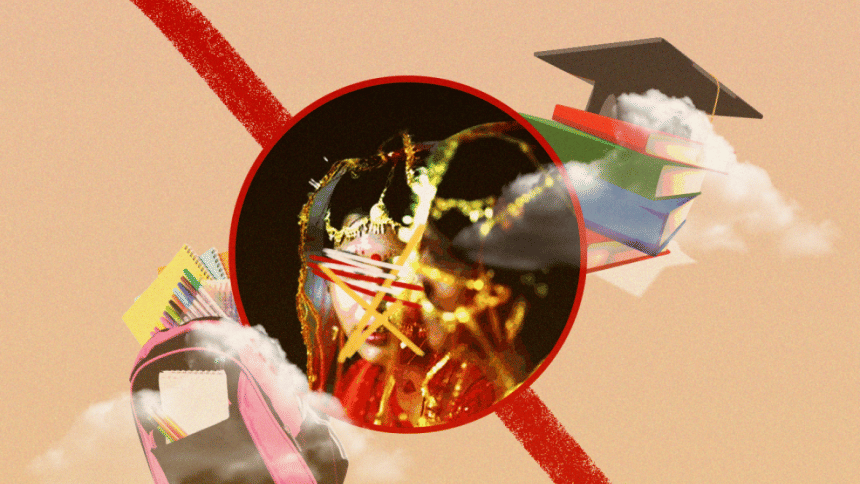'A girl that gets married before turning 18 is one too many'

Unicef has urged Bangladesh to act now to protect its adolescent girls from violence, child marriage, and exclusion from education, saying promises alone will not change lives.The agency called for laws to be enforced, safe spaces to be built, and girls' voices to be heard in decisions about their futures, as it marked the International Day of the Girl 2025 this week."A girl that gets married before turning 18 is one too many. A girl who cannot finish school is one too many. A girl suffering fro...
Unicef has urged Bangladesh to act now to protect its adolescent girls from violence, child marriage, and exclusion from education, saying promises alone will not change lives.
The agency called for laws to be enforced, safe spaces to be built, and girls' voices to be heard in decisions about their futures, as it marked the International Day of the Girl 2025 this week.
"A girl that gets married before turning 18 is one too many. A girl who cannot finish school is one too many. A girl suffering from violence at home is one too many," said Rana Flowers, Unicef representative in Bangladesh, in a statement.
Under this year's global theme, "The Girl I Am, The Change I Lead: Girls on the Frontlines of Crisis", Unicef celebrated girls as leaders and agents of transformation, not victims of circumstance.
"Their voices, ideas, and leadership are essential to overcoming the crises threatening their future -- from poverty and social norms to gender-based violence and climate shocks," Flowers said.
Despite notable progress in education and awareness, Unicef said adolescent girls in Bangladesh continue to face major challenges that hold them back. Only 10–17 percent of girls pursue science and technology subjects, a statistic the agency described as limiting their participation in the fast-evolving digital economy.
Child marriage and early pregnancy remain widespread, along with gender-based violence. "Violence at home, in public, or online continues to deny too many girls their right to safety and dignity," Flowers said.
Mental health was identified as another pressing concern. A recent survey shows that 12 percent of ever-married [a person who has been married at least once in their lifetime] and 9 percent of unmarried adolescent girls experience moderate depressive symptoms. "Too many girls are struggling in silence. They need mental health and social protection services that truly respond to their realities," Flowers said.
Amid these challenges, Unicef highlighted that many girls across Bangladesh are already leading change.
"Every day, we meet girls who organise community relief work, lead school initiatives, and stand up for equality," said Flowers. "They are not waiting for change; they are the change."
Unicef called on the government, civil society, and development partners to invest in girl-led organisations, enforce child protection laws, and create safe and inclusive environments for girls to thrive.